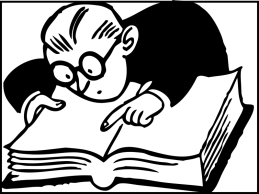Why bother learning in the summer?
Are there any benefits to learning in the summer?
There are many excellent reasons to keep learning over those long summer months.
Avoid the summer slide!
Note: Water slides are acceptable
You might have already heard of this. Students, particularly those that aren’t academically strong, lose a lot of ground over the summer months. A small amount of practice makes dramatic differences come September.
It doesn’t take long
A couple of hours a week is all it takes in most cases.
Remember that an hour of tutoring is often more focused than six hours of school time.
I do understand that some students are very reluctant to take part in summer learning; however, I remind them and their parents that over the two to three months of summer tutoring, with only a couple of hours a week, they will have spent 16 to 20 hours in tutoring. There are approximately 1560 hours in that same time.
So, out of 1560 hours, you spend only 16 to 20 hours at the tutor!
It is not expensive
The fees for tutoring pay off big time in results. Not only will the student do better in the fall but he or she will be set up to excel for the whole year the results are exponential.
A student who believes in himself or herself will be happier and more willing to keep trying. Who doesn’t want happiness anyway!
If you think education is expensive – try ignorance.
Summer learning is more relaxing
The pressures of school are off for the summer. There won’t be any major projects, speeches, book reports, math tests, etc. for a couple of months. I try to impress upon my students that the whole goal is to learn – not necessarily to pass a test. Just keep doing better than the last time and keep moving forward. Pay attention to the learning and the grades, when you are back at school, will take care of themselves!
Learning is elevating and tasty!
Learning new ideas and how to express them is not torture – or, at least, it shouldn’t be. (Hint: you are with the wrong tutor if it is.) We humans do better physically and emotionally when we keep learning. We are curious by nature, so we should feed that need to know. True, it sometimes takes effort and a wee bit of tedious practice, but the end result is so sweet.
Don’t hesitate
It is near! I realize that we are just now entering into May, but summer comes quickly setting up a plan now will make the transition easier. Being a consistent learner brings the best results.
Call or email to arrange online or in person tutoring lessons today.
Website: www.tutoringcentral.com






